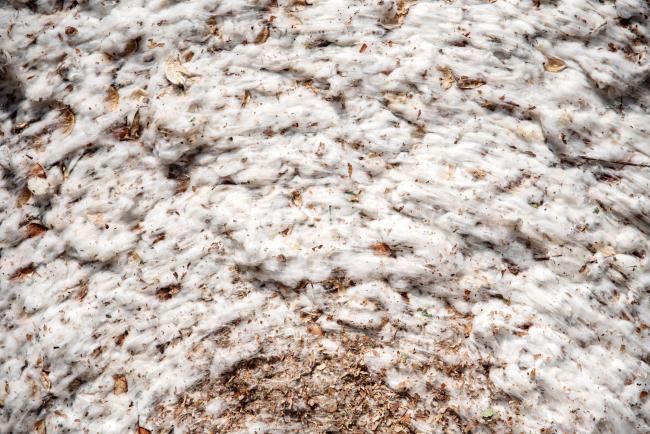(Bloomberg) -- Farmers in the U.S. Southeast are gearing up for Hurricane Dorian after the storm wreaked havoc in the Bahamas. Orange groves in Florida look like they’ll be spared from a heavy blow.
Dorian is now crawling at 2 miles per hour with sustained winds of around 110 miles (177 kilometers) per hour, making it a Category 2 hurricane, the National Hurricane Center said in an 11 a.m. New York time advisory. The movement is expected to speed up later Tuesday and on Wednesday and is forecast to move Dorian “dangerously close” to the Florida coastline as it travels north toward Georgia and the Carolinas.
North Carolina Governor Roy Cooper declared a state of emergency as the storm threatened “severe economic loss” on livestock, poultry and crops that were ready to be harvested, Steve Troxler, North Carolina agriculture commissioner, said in a statement. Due to the emergency, weight limits were temporarily suspended on trucks transporting animals and crops. The state accounts for about 12%, or 9 million head, of the U.S. hog herd, according to government data. South Carolina has also declared a state of emergency.
Crop Impact
Flooding across eastern portions of North Carolina and South Carolina could hurt cotton, said Donald Keeney, senior agricultural meteorologist at Maxar in Gaithersburg, Maryland. The plants are also vulnerable to strong winds and flooding, which could hurt quality. It’s still unclear how much damage there will be to crops, according to Drew Lerner, president of World Weather Inc. in Overland Park, Kansas.
The potential damage to cotton in the Carolinas combined with recent dryness in West Texas, the nation’s top growing region, may lead the U.S. Department of Agriculture to trim its estimate for domestic production in the 2019-2020 season that started last month, Louis Rose, director of research and analysis at Rose Commodity Group in Memphis, Tennessee, said by email.
Peanuts crops in the Carolinas may also be flooded and some “minor” plantings of corn and soybeans in those states could be affected, Keeney said. Livestock operations, including poultry and livestock located on “the far eastern fringes” could also be hit, he said.
Meanwhile, the current storm path means Florida orange groves will probably be spared major damage as the system is expected to stay far enough away from prime growing regions, said Joel Widenor of Commodity Weather Group in Bethesda, Maryland. Orange juice futures traded in New York dropped as much as 6.4% on easing supply concerns.
Billions in Damage
In the last five years, the U.S. Southeast has been hit by two hurricanes and a devastating flood that caused $37.2 billion in damage, according to the U.S. National Centers for Environmental Information in Asheville, North Carolina.
In October 2015, flooding across South Carolina sent rivers out of their banks for weeks and cost at least $2.2 billion, according to the center. A year later, Hurricane Matthew grazed the East Coast sending a second round of flooding across many of the same areas, as well as Florida, Georgia and North Carolina causing $10.8 billion in damage, the agency said. In eastern North Carolina 100,000 homes, businesses and farm buildings were flooded.
Lagoons holding hog waste have been “well managed” and “can receive the amounts of rain forecast,” the North Carolina Pork Council said in a statement.
Floodwaters can cause waste pits to collapse or overflow, potentially spreading bacteria. Last year, the state faced a health and environmental crisis after at least 17 hog-waste lagoons were compromised and sewage plants across the state flooded, releasing millions of gallons of partially treated human discharge.
